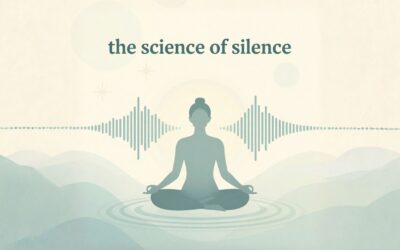In today’s hyper-connected world, CEOs are under more pressure than ever. The relentless demands of leadership, constant decision-making, and the unceasing flow of information can lead to stress, burnout, and diminished creativity. In such an environment, the idea of a silent retreat—a period of deliberate withdrawal from noise, communication, and external stimulation—might seem counterintuitive. After all, how can a leader be productive while doing “nothing”?
Yet, many successful CEOs and entrepreneurs swear by the transformative power of silence. Silent retreats are not about idleness but about intentional detachment, self-reflection, and recalibration. This blog explores why silent retreats are essential for CEOs and how they can enhance leadership effectiveness, foster creativity, and promote overall well-being.
1. Breaking Free from the Noise
The modern CEO’s life is filled with noise—emails, meetings, phone calls, social media notifications, and endless streams of data. This noise isn’t just external; it’s internal, too, manifesting as mental clutter, anxiety, and the perpetual pressure to perform.
Silent retreats offer a sanctuary from this chaos. By stepping away from external distractions, CEOs can quiet their minds and reconnect with their inner selves. This silence provides a rare opportunity to process unresolved thoughts, gain clarity, and refocus on what truly matters. Leaders who have experienced silent retreats often report feeling lighter, more centred, and better equipped to face challenges upon their return.
2. Enhancing Decision-Making Through Clarity
CEOs are the ultimate decision-makers. Yet, the quality of their decisions depends on their mental clarity. Constant multitasking and overstimulation can cloud judgment, leading to poor choices.
In silence, the mind slows down. This deceleration allows for deeper reflection, enabling leaders to approach problems with greater precision and foresight. Neuroscience supports this idea: periods of quiet and mindfulness activate the brain’s default mode network, which is associated with self-referential thinking and creative problem-solving.
When CEOs take the time to step back and clear their minds, they’re not shirking responsibility—they’re setting themselves up to make sharper, more impactful decisions.
3. Reconnecting with Purpose
The relentless pursuit of business success can sometimes cause CEOs to lose sight of their deeper purpose. Why are they leading? What is the ultimate mission of their organization?
A silent retreat is a perfect opportunity for leaders to reconnect with their “why.” Removed from the noise and distractions of daily operations, CEOs can reflect on their values, intentions, and long-term goals. This reconnection not only reinvigorates their passion for leadership but also strengthens their ability to inspire and guide their teams with authenticity.
4. Cultivating Emotional Intelligence
Emotional intelligence (EQ) is a critical trait for effective leadership. It encompasses self-awareness, empathy, and the ability to manage emotions—all skills that can be enhanced through silence and mindfulness.
During a silent retreat, CEOs have the space to observe their thoughts and emotions without judgment. This practice can lead to profound self-awareness, helping leaders understand their triggers, biases, and emotional patterns. Greater self-awareness translates into better relationships with team members, improved conflict resolution, and a more empathetic leadership style.
In essence, silence cultivates the emotional resilience needed to navigate the complexities of leadership.
5. Boosting Creativity and Innovation
Innovation is the lifeblood of any successful organization, and CEOs are often expected to be the primary drivers of creative thinking. However, creativity thrives in an uncluttered mind.
When CEOs step away from their usual routines and immerse themselves in silence, their brains are free to wander, explore, and make unexpected connections. This phenomenon, known as “divergent thinking,” is essential for generating fresh ideas and solutions.
Many CEOs who have attended silent retreats report returning to work with groundbreaking ideas or new perspectives on old problems. By temporarily disconnecting from the business world, they unlock the creativity needed to drive their organizations forward.
6. Fostering Physical and Mental Health
The high-stakes nature of leadership can take a toll on both physical and mental health. Stress, sleeplessness, and burnout are common among CEOs, often leading to diminished performance and even long-term health issues.
Silent retreats, which often incorporate mindfulness practices like meditation and yoga, can significantly reduce stress and improve overall well-being. Studies have shown that mindfulness lowers cortisol levels, reduces blood pressure, and enhances mental clarity.
For CEOs, taking time to care for their own health isn’t selfish—it’s a strategic investment. A healthy leader is a more effective leader, capable of sustaining high performance over the long haul.
7. Setting an Example for the Organization
When a CEO prioritizes their own well-being and personal growth, it sends a powerful message to their organization. It demonstrates that self-care, mindfulness, and work-life balance are not just buzzwords but essential components of a thriving workplace culture.
By openly sharing their experiences and insights from a silent retreat, CEOs can inspire their teams to adopt similar practices, leading to a healthier, more mindful workforce. This ripple effect can enhance employee engagement, reduce burnout, and foster a more resilient organizational culture.
8. The Transformative Power of Disconnecting
In an age where connectivity is equated with productivity, the idea of disconnecting can feel radical. But for CEOs, the act of stepping away from constant connectivity is profoundly liberating.
A silent retreat offers a rare chance to unplug—not just from technology but from the relentless demands of leadership. It’s a reminder that true power lies not in constant action but in thoughtful reflection and intentionality.
As paradoxical as it may seem, disconnecting can lead to deeper connections: with oneself, with one’s purpose, and with the people and mission that matter most.
9. Connecting with other CEOs
During a silent retreat for only CEO’s and entrepreneurs is a fantastic way to help each other through each others experiences. Brainstorming ideas from past successes of others can solve problems facing a CEO in their own business. Often CEO’s do not have anyone to bounce ideas off of and having a space where they can connect with other business owners can assist them in their future.
Conclusion: Embracing the Silence
Silent retreats are not a luxury or an indulgence—they’re a necessity for today’s leaders. In a world that values speed, noise, and perpetual action, taking time to be still and silent is a revolutionary act of self-care and leadership.
For CEOs, a silent retreat is not about retreating from responsibility but about embracing it with renewed vigor, clarity, and creativity. It’s about stepping back so they can step forward with greater purpose and impact.
As the old saying goes, “Silence is not the absence of something but the presence of everything.” For CEOs willing to embrace the silence, the rewards are profound—both for themselves and for the organizations they lead.
For more information about Silent Focus’s luxury CEO silent retreats visit the retreat page.





